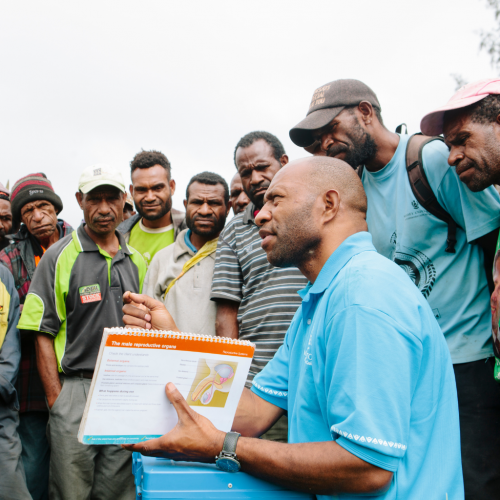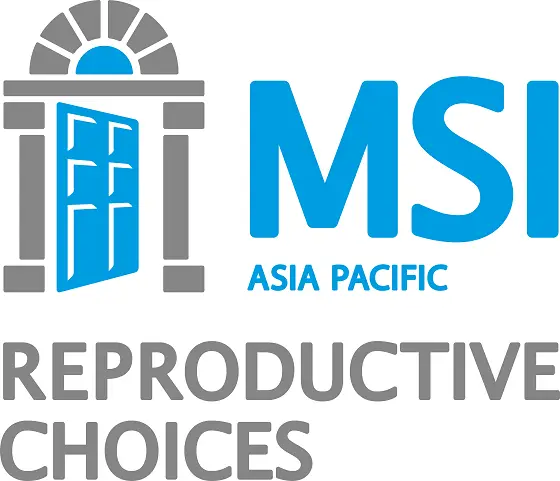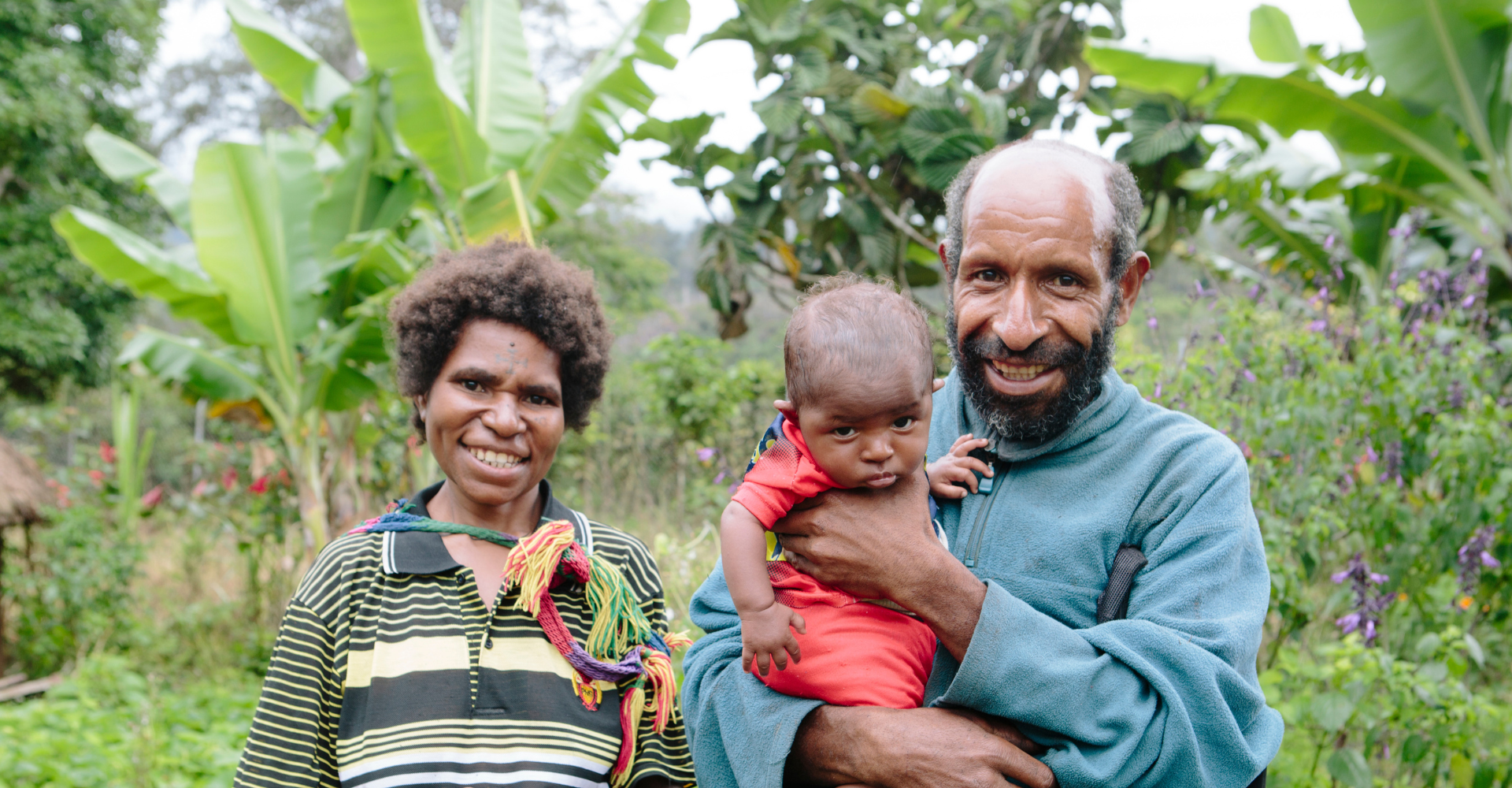In Papua New Guinea, millions of people walk for days to access basic healthcare.

The largely rural population relies heavily on basic roads, which are often impacted by floods and landslides. As climate and weather events impact health, safety and livelihoods, the importance of family planning continues to grow.
For Paul*, a 32-year-old man living in a rural area on the border of Gulf and Morobe provinces, changing conditions for his business were a key driver in his decision to seek family planning support.
Paul provided for his wife and five young children through coffee farming, but deteriorating local roads have impacted the viability of farming. As a subsistence farmer, this had a major impact on his family’s wellbeing and financial security.
Paul provided for his wife and five young children through coffee farming, but deteriorating local roads have impacted the viability of farming. As a subsistence farmer, this had a major impact on his family’s wellbeing and financial security.
Paul heard about MSI from some of its Community-Based Mobilisers and from other community members, who were sharing stories of their positive experiences receiving services through MSI.
Though customary taboos in Papua New Guinea tend to shape attitudes toward family planning, Paul made the decision to get a vasectomy.
He considered several factors including the distance from essential services like healthcare, the number of women in his community dying from childbirth complications, and the shortage of land to farm locally. He also wanted to relieve his wife from the stresses of undergoing an invasive procedure.
The MSI vasectomy procedure uses a quick and minimally invasive technique with low levels of pain. Vasectomies have fewer complications compared to other surgical procedures and are a reliable form of contraception.
Though the decision to get a vasectomy was not made lightly, Paul felt it was the right one for him and his family. He and his wife travelled for two days and nights, crossing rivers and mountainous terrain to reach the MSI Morobe Outreach team where they were stationed.
This highlights the extent of the country’s challenging terrain and the need for outreach services, which may still be hours away from people living rurally.
After the procedure, Paul was happy with the quality of care provided by MSI. He feels the benefits of a vasectomy outweigh the challenges of customary taboos and the hard journey. His vasectomy story will be shared in his community, which may encourage other men to consider their family planning options.
Paul’s story highlights the role men can play in family planning, and the ability of individuals to overcome stigma to ensure the health of their families. MSI is working to ensure more men like Paul understand the benefits of and can access vasectomies.
*Images and name have been changed to protect privacy.

